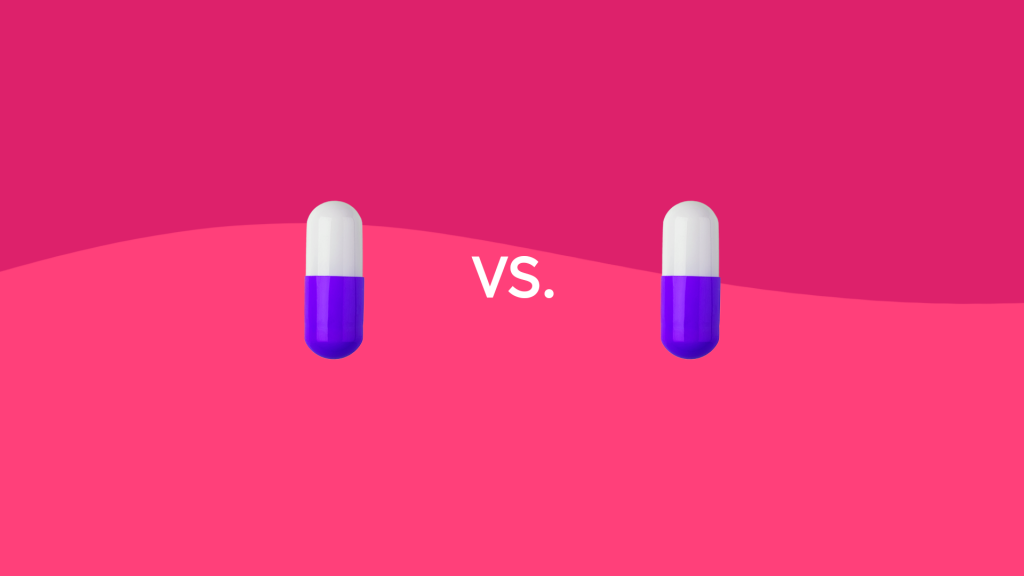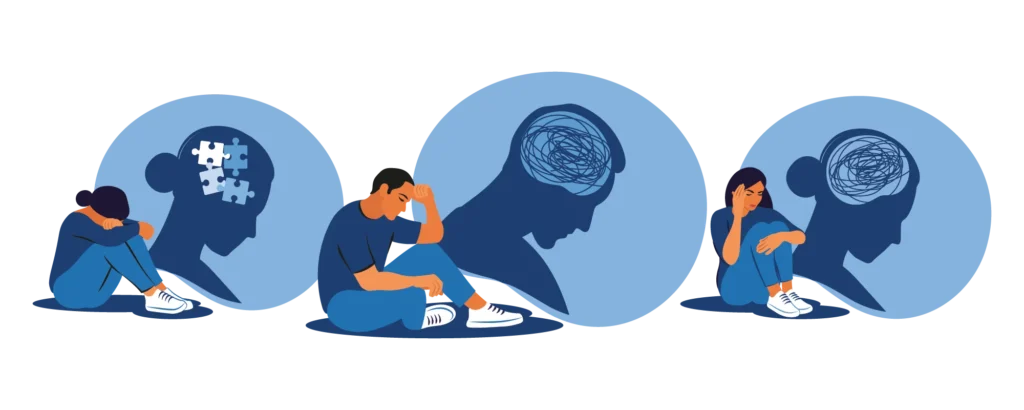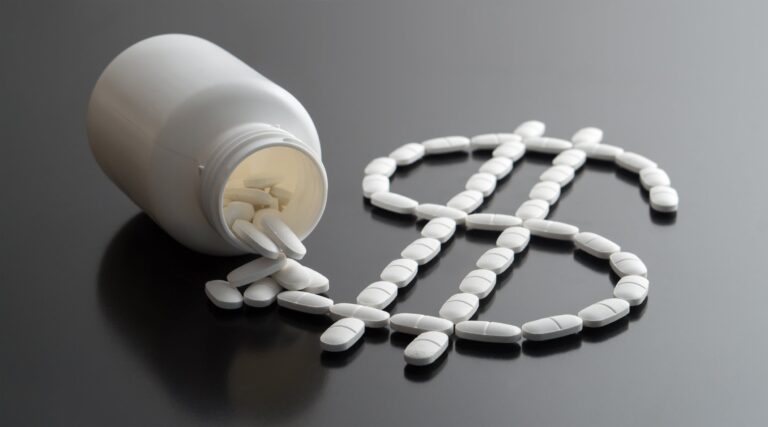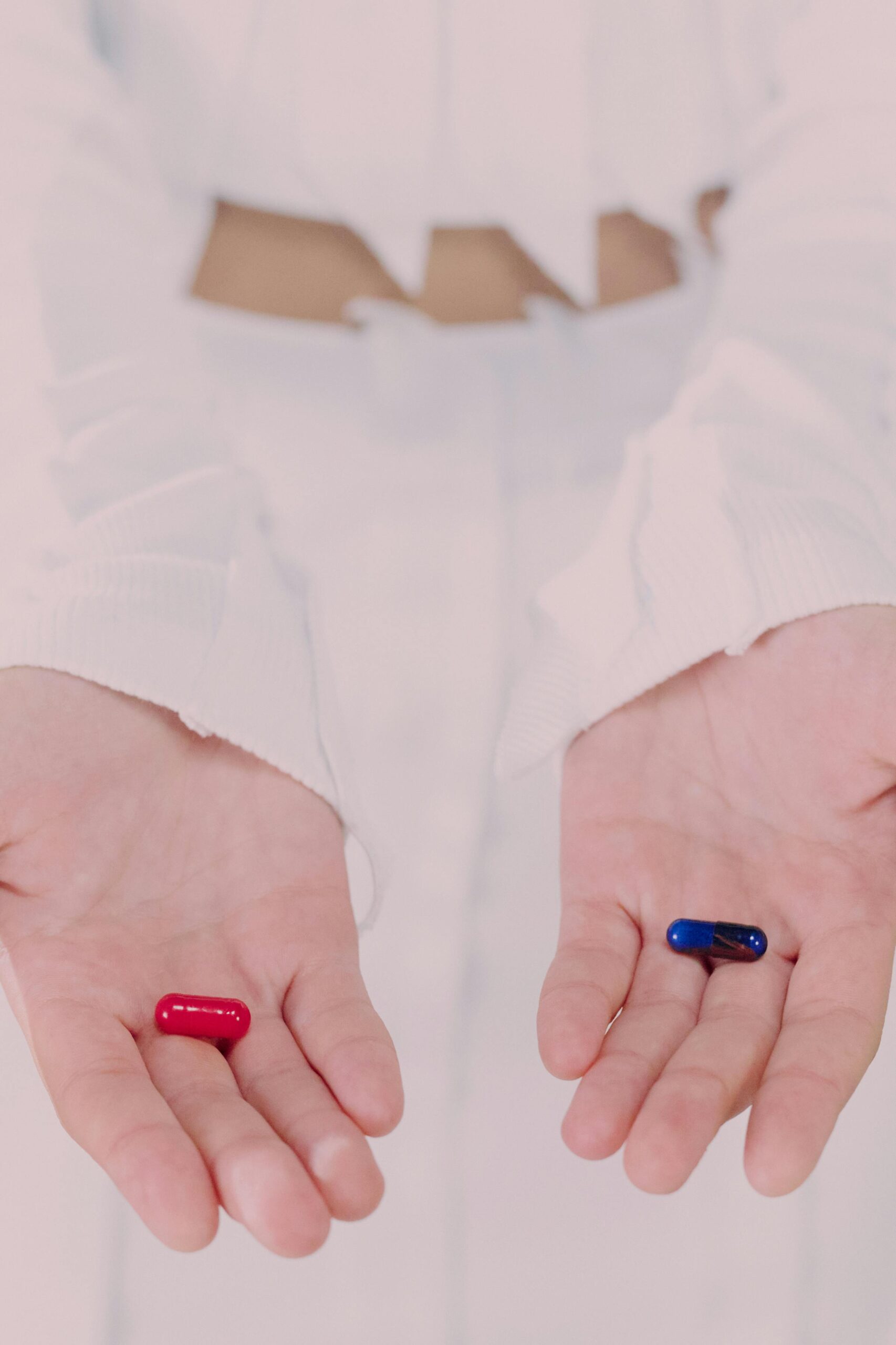
Here we have the ultimate confrontation between Adderall and Focalin, the giants of focus. Should you occasionally feel as though you have 100 tabs open on your browser, you may be familiar with these two drugs. They resemble the ADHD world’s version of the superhero team. But who looks better with the cape on? Let’s investigate!
Adderall and Focalin are both given to help people with ADHD focus, but they work a little bit differently. While they both seek to help you focus and quiet your mind, being aware of their little differences can help you choose the right accompaniment. It’s important to note that adderall focalin medications are not suitable for everyone, and consulting healthcare providers is crucial, especially for specific populations such as pregnant and breastfeeding individuals.
Key Takeaways
- Focalin (dexmethylphenidate) and Adderall (a mix of amphetamine salts) are both stimulant medications for ADHD but differ in their chemical composition and how they affect neurotransmitters in the brain.
Both medications are effective for ADHD but may work differently for individuals. Focalin tends to have a shorter duration, while Adderall often lasts longer, affecting how frequently each needs to be taken.
- While both drugs can cause side effects like increased heart rate, appetite loss, and insomnia, individuals may respond differently. A healthcare provider can help determine which medication suits a person’s specific symptoms and health profile.
Table of Contents
Understanding Attention Deficit Hyperactivity Disorder (ADHD)
Attention Deficit Hyperactivity Disorder (ADHD) is like the arch-nemesis in our superhero story. It’s a neurodevelopmental disorder that can make focusing on tasks feel like trying to catch a slippery villain. ADHD is characterized by symptoms of inattention, hyperactivity, and impulsivity, and it’s one of the most common childhood disorders that can persist into adulthood. Imagine having a sidekick who’s always a bit too hyper or easily distracted—that’s what living with ADHD can feel like. ADHD medication is a common treatment option for managing these symptoms.
ADHD doesn’t discriminate; it affects both children and adults, though it’s more commonly diagnosed in boys and men. Symptoms can vary widely, but common ones include difficulty paying attention, impulsivity, and hyperactivity. It’s like having a superhero with a lot of energy but no clear direction.
The exact cause of ADHD remains a mystery, but research suggests it’s related to differences in brain structure and function, particularly in the prefrontal cortex—the brain’s command center. Thankfully, ADHD can be managed with medication, behavioral therapy, or a combination of both, helping our heroes regain control and focus.
What is ADHD and how is it diagnosed?
Attention Deficit Hyperactivity Disorder (ADHD) is like the arch-nemesis in our superhero story. It’s a neurodevelopmental disorder that can make focusing on tasks feel like trying to catch a slippery villain. ADHD is characterized by symptoms of inattention, hyperactivity, and impulsivity, and it’s one of the most common childhood disorders that can persist into adulthood. Imagine having a sidekick who’s always a bit too hyper or easily distracted—that’s what living with ADHD can feel like.
Diagnosing ADHD is a bit like assembling a superhero team; it requires a comprehensive evaluation. This includes a physical exam, a detailed medical history, and psychological assessments. The Diagnostic and Statistical Manual of Mental Disorders (DSM-5) outlines the criteria for diagnosing ADHD, ensuring that the diagnosis is accurate and thorough.
The symptoms of ADHD can be divided into three main categories:
- Inattention: Difficulty sustaining focus, following instructions, and completing tasks. It’s like trying to read a book while a mischievous imp keeps flipping the pages.
- Hyperactivity: Excessive fidgeting, restlessness, and feeling constantly “on the go.” Think of it as having a motor that never stops running.
- Impulsivity: Difficulty controlling impulses, interrupting others, and blurting out answers. It’s like having a superhero who leaps before they look.
A healthcare professional, such as a pediatrician, psychologist, or psychiatrist, typically makes the diagnosis. They will assess the individual’s symptoms, behavior, and medical history to determine if ADHD is the culprit behind the chaos.
The Superpowers’ Scientific Basis
Let’s get to know our contenders before we get into the specifics. The more focused brother of methylphenidate, the active component of Ritalin, is focalin, also known scientifically as dexmethylphenidate. Similar to an espresso shot, ADHD meds offer a focused boost.
Conversely, Adderall is a mixture of mixed amphetamine salts, which includes both dextroamphetamine and levoamphetamine. Think of it as a well-balanced energy drink that delivers a consistent dose of deliciousness that improves focus. It has been in use for a while and has earned a reputation for being beneficial in treating ADHD. Adderall contains a mixture of amphetamine salts, including amphetamine sulfate.
Both drugs function by raising the brain’s concentrations of specific neurotransmitters, most notably norepinephrine and dopamine. Consider these substances as your brain’s own cheerleaders; they will fire up neurons to keep you focused.

What is Adderall and how does it work?
Adderall is like a trusty gadget in a superhero’s arsenal, designed to combat the chaos of Attention Deficit Hyperactivity Disorder (ADHD) and narcolepsy. This prescription medication is a central nervous system (CNS) stimulant that contains a powerful combination of amphetamine salts, including dextroamphetamine and amphetamine sulfate. These ingredients work together to boost the levels of certain neurotransmitters, such as dopamine and norepinephrine, in the brain. Think of these neurotransmitters as the brain’s command center, helping to enhance attention, motivation, and impulse control.
Adderall comes in two forms: immediate-release (IR) and extended-release (XR). The IR form is like a quick burst of energy, taken two to three times a day to keep you on your toes. On the other hand, Adderall XR is designed for those marathon days, providing a sustained release of the medication over a longer period, so you only need to take it once daily. It’s like having a steady stream of power to keep you focused throughout the day.
Whether you’re tackling a mountain of work or trying to stay awake during a long meeting, Adderall can be a valuable ally in your quest for focus and productivity.
What is Focalin and its mechanism of action?
Focalin is another superhero tool in the fight against Attention Deficit Hyperactivity Disorder (ADHD). This prescription medication contains the active ingredient dexmethylphenidate hydrochloride, a central nervous system (CNS) stimulant. Focalin works by increasing the levels of key neurotransmitters, such as dopamine and norepinephrine, in the brain. These neurotransmitters are like the brain’s cheerleaders, helping to improve attention, motivation, and impulse control.
Focalin is available in two forms: immediate-release (IR) and extended-release (XR). The IR form is taken twice daily, providing a quick boost of focus when you need it most. Meanwhile, Focalin XR is designed for those who need a longer-lasting effect, with a sustained release of the medication over the course of the day. It’s like having a reliable sidekick that keeps you on track from morning till night.
Whether you’re facing a short-term challenge or a day-long mission, Focalin can help you stay focused and in control.
Forms and Dosages: Tailoring the Superpowers
Just like every superhero has their unique gadgets, Focalin and Adderall come in various forms and dosages to suit different needs. Focalin is available in immediate-release tablets and extended-release capsules, while Adderall offers immediate-release tablets and extended-release capsules as well. Think of these as different modes of transportation—sometimes you need a quick jet for a short mission, and other times, a steady spaceship for a long journey.
Focalin’s immediate-release form comes in three dosage options, while its extended-release form offers seven. Adderall, on the other hand, provides seven dosage options for its immediate-release form and five for its extended-release form. The extended-release versions are designed to keep you focused for up to 12 hours, perfect for those marathon days. Meanwhile, the immediate-release forms last about 4 to 6 hours, ideal for shorter tasks.
Finding the right dosage is like fine-tuning your superhero suit. It’s essential to work with a healthcare professional to ensure you get the perfect fit for your needs, maximizing your focus and minimizing any side effects.

Who Is the Crown Bearer?
“Which one works better?” is one of the most often asked questions. That, of course, depends on your goals. Both Focalin and Adderall are renowned for their effectiveness in treating ADHD, but they have different characteristics. Focalin helps you focus by kicking in immediately, much like a sprinter. Its effects might not, however, linger as long as those of Adderall.
Adderall is more like a marathon runner when it comes to its extended-release forms. It may take a little longer to start, but once it starts, it follows you around all day. It is therefore a fantastic choice for anyone who want prolonged concentrate.
The decision between Adderall and Focalin ultimately comes down to your daily schedule. Is your focus longer-lasting or do you need a rapid boost for shorter tasks? Determining which drug could be your perfect productivity companion will depend on your understanding of your demands.
Adverse Repercussions: Drug Interactions and the Unhappy Aspect of Superpowers
Focalin and Adderall, both central nervous system stimulants, have side effects, just like any superhero. But don’t worry, with a little help from your healthcare practitioner, they’re typically controllable.
Anxiety, difficulty sleeping, and appetite loss are some of the negative effects of Focalin. It’s comparable to that friend that encourages you to study but insisted on playing loud music. Positively, these effects frequently fade with time.
Adderall may exacerbate these problems in addition to raising heart rate. It’s like having a study partner who enjoys coffee and sometimes pushes you to sign up for a marathon. Effective management of these side effects can be facilitated by close observation and dialogue with your physician.
Serious Risks and Contraindications: The Dark Side of Superpowers
Every superhero has their kryptonite, and for Focalin and Adderall, it’s the potential for serious side effects and risks. Both are Schedule II controlled substances, meaning they have a high potential for abuse and dependence. It’s crucial to be aware of this dark side to use these superpowers responsibly.
Common side effects include insomnia, nausea, and dizziness, but in rare cases, these medications can cause severe issues like stroke, heart attack, and even death. It’s like having a powerful weapon that needs to be handled with care.
Drug interactions are another concern. Focalin and Adderall can interact with blood pressure medications, antidepressants, antipsychotics, monoamine oxidase inhibitors, seizure medications, and acid reducers. People with high blood pressure or heart-related conditions should be particularly cautious. Always consult with your healthcare professional to navigate these potential pitfalls safely.
Risk of Dependency: The Hidden Peril of Superpowers
Every superhero has their kryptonite, and for Focalin and Adderall, it’s the risk of dependency. Both of these medications are classified as Schedule II controlled substances by the Drug Enforcement Administration (DEA), meaning they have a high potential for abuse and dependence. It’s crucial to be aware of this hidden peril to use these superpowers responsibly.
The signs of dependency on Focalin or Adderall can be subtle at first but may include:
Taking more medication than prescribed
Taking medication more frequently than prescribed
Feeling anxious or irritable when unable to take the medication
Experiencing withdrawal symptoms when trying to stop taking the medication
It’s essential to use these medications only as directed by a healthcare professional and to monitor their use closely. Think of it as handling a powerful weapon—you need to be cautious and responsible to avoid unintended consequences.
Doctor’s Orders: ADHD Medications and Prescription Protocols
Your doctor is the one who controls access to these focus-enhancing medications because both Adderall and Focalin require a prescription. The procedure usually includes assessing your medical history and symptoms to determine the most suitable ADHD medications.
Your doctor will take into account things like your age, way of living, and any prior history of using ADHD medications. It resembles matchmaking, but exclusively for the mind. They want to make sure the drug you receive is the most appropriate for your needs.
Never forget how important it is to listen to your doctor and avoid self-medication. It makes sense that you wouldn’t want to don a superhero suit and not know how to operate it.
Legality and Availability: Navigating the Superpower Laws
In the world of superheroes, even the mightiest need to follow the law. Focalin and Adderall are regulated by the Drug Enforcement Administration (DEA) as Schedule II controlled substances, meaning they have a high potential for abuse and dependence. Using or possessing these medications without a prescription is illegal, and selling or giving them to others is a big no-no.
Fortunately, generic versions of Focalin and Adderall are available, making these superpowers more affordable. The cost can vary depending on your location and pharmacy, but on average, generic Focalin costs around $20-$30 per prescription, while generic Adderall is about $30-$50. It’s like choosing between a high-tech suit and a more budget-friendly version—both get the job done, but one might save you some cash.
Expense Factors: The Cost of Superpowers
Honey, let’s talk money. Several factors, such as insurance coverage and whether you choose brand-name or generic versions, might affect the cost of Adderall and Focalin.
Both drugs have generic equivalents available, which are typically more affordable. It’s similar to choose between a cape from your local store and a designer one; both will let you soar, but one may put more money in your pocket.
To learn more about your possibilities for coverage, speak with your insurance company. When it comes to investing in their , many people manage to make these treatments work within their means.

Finding the Right Fit: Lifestyle and Compatibility
Think about how Adderall and Focalin fit into your lifestyle while making your decision to treat ADHD. Do you need motivation in the morning or are you a night owl who needs to concentrate during late-night study sessions?
If you need a short boost to concentration, Focalin’s quick action may be ideal, but Adderall’s extended-release formula may work better for tasks that take place throughout the day. Take into account your everyday routine and any obligations that can influence when you take your prescription to treat ADHD.
In the end, it all comes down to striking a balance that helps you reach your objectives without interfering with your way of life. A superhero is just as good as their capacity for situational adaptation, after all!
Switching Medications: Changing Your Superhero
Sometimes, even superheroes need to switch up their gear. Transitioning from Focalin to Adderall or vice versa can be a complex process, requiring careful planning and monitoring. It’s essential to work with a healthcare professional to ensure a smooth transition, adjusting the dosage and form as needed.
Switching medications can come with withdrawal symptoms, which can last from a few days to several weeks. It’s like changing your superhero suit—you might feel a bit off until you get used to the new one. Monitoring side effects and working closely with your healthcare professional can help manage these symptoms and ensure a successful transition.
In the end, whether you stick with Focalin or switch to Adderall, the goal is to find the right superpower that helps you conquer your day with focus and confidence.
Individual Narratives: Histories from the Focus Frontier
It can be instructive to hear from people who have experienced ADHD therapy firsthand. Many people have told tales of how Adderall or Focalin changed their life and enabled them to accomplish objectives they had previously believed were unachievable.
Some report having improved their ability to focus on their work or academics, while others express gratitude for their increased composure in social settings. It’s like getting a jet-powered bicycle instead of a normal one, which makes life’s ride more pleasurable and smoother.
But keep in mind that every person has a different experience. What is ideal for one individual may not be the best option for another. Finding your unique focus formula and making mistakes are the key to this process.
Diet and Exercise’s Function in Boosting the Superpowers: The Role of Extended Release Capsules
Despite being strong allies, Adderall and focalin function best when combined with a healthy lifestyle. Consider it a dynamic partnership between wellness practices and drugs.
A well-balanced, nutrient-rich diet can enhance these drugs’ effectiveness. Foods that improve brain function, such as fish’s omega-3 fatty acids, can be especially helpful. It’s similar to using premium gasoline to power your supercar.
Frequent exercise is an excellent ally as well. Engaging in physical activity releases endorphins, which are the body’s natural mood enhancers that support concentration and optimism. It’s also a fantastic method to burn off whatever additional energy the medicine may provide.
Behavioral Therapy as an Alternative: A Non-Pharmaceutical Path
Not all superheroes rely on gadgets; some hone their skills through rigorous training. Behavioral therapy is a non-pharmacological approach to treating Attention Deficit Hyperactivity Disorder (ADHD), offering a different kind of superhero training. This therapy involves working with a therapist to identify and change negative thought patterns and behaviors that contribute to ADHD symptoms.
Behavioral therapy can be used alone or in combination with medication to treat ADHD. It’s often recommended for individuals who are unable to take medication or who prefer a non-pharmaceutical approach. Some common types of behavioral therapy used to treat ADHD include:
- Cognitive-behavioral therapy (CBT): Helps individuals identify and change negative thought patterns and behaviors. It’s like reprogramming your superhero suit for better performance.
- Behavioral modification: Helps individuals develop new skills and behaviors to manage ADHD symptoms. Think of it as learning new superhero moves.
- Social skills training: Helps individuals develop social skills and improve relationships. It’s like building a superhero team that works well together.
Behavioral therapy can be an effective alternative to medication for some individuals with ADHD. However, it’s essential to work with a qualified therapist to develop a personalized treatment plan. After all, every superhero needs a mentor to guide them on their journey.
The Choosing Your Superhero Final Verdict
In the epic battle between Adderall and Focalin, there is no obvious victor. Because of their individual qualities and characteristics, each is a good fit for a variety of people and lifestyles.
Working collaboratively with your healthcare practitioner to identify the medication that best suits your needs is the best course of action. Recall that this is a personal journey, and some trial and error may be necessary to find the perfect fit.
You’re on the right track to overcoming distractions and accomplishing your objectives, regardless of whether you go for Adderall’s consistent endurance or Focalin’s fast-acting focus. Every superhero, after all, could use a little assistance keeping on course!
Dr. Mitchell G. Cohen is a board-certified Internal Medicine specialist with over 34 years of experience in patient-centered healthcare. A graduate of Hahnemann University School of Medicine, Dr. Cohen completed his internship at the University Health Center of Pittsburgh, where he gained invaluable hands-on experience. He is also a certified addiction specialist, holding membership with the American Society of Addiction Medicine (ASAM).
Currently based in Nashua, NH, Dr. Cohen is affiliated with Saint Joseph Hospital, where he provides comprehensive care focusing on both internal medicine and addiction treatment. His expertise includes prevention, diagnosis, and management of adult diseases, as well as specialized care for individuals facing substance use disorders.
Dr. Cohen is committed to fostering open communication, ensuring his patients are fully informed and empowered to make confident decisions about their health and treatment options.

MD Mitchell Grant Cohen
Dr. Mitchell G. Cohen is a board-certified Internal Medicine specialist with over 34 years of experience in patient-centered healthcare. A graduate of Hahnemann University School of Medicine, Dr. Cohen completed his internship at the University Health Center of Pittsburgh, where he gained invaluable hands-on experience. He is also a certified addiction specialist, holding membership with the American Society of Addiction Medicine (ASAM).
Currently based in Nashua, NH, Dr. Cohen is affiliated with Saint Joseph Hospital, where he provides comprehensive care focusing on both internal medicine and addiction treatment. His expertise includes prevention, diagnosis, and management of adult diseases, as well as specialized care for individuals facing substance use disorders.
Dr. Cohen is committed to fostering open communication, ensuring his patients are fully informed and empowered to make confident decisions about their health and treatment options.
- MD Mitchell Grant Cohen
- MD Mitchell Grant Cohen
- MD Mitchell Grant Cohen
- MD Mitchell Grant Cohen
- MD Mitchell Grant Cohen
- MD Mitchell Grant Cohen
- MD Mitchell Grant Cohen
- MD Mitchell Grant Cohen
- MD Mitchell Grant Cohen
- MD Mitchell Grant Cohen
- MD Mitchell Grant Cohen
- MD Mitchell Grant Cohen
- MD Mitchell Grant Cohen
- MD Mitchell Grant Cohen
- MD Mitchell Grant Cohen
- MD Mitchell Grant Cohen
- MD Mitchell Grant Cohen
- MD Mitchell Grant Cohen
- MD Mitchell Grant Cohen
- MD Mitchell Grant Cohen
- MD Mitchell Grant Cohen
- MD Mitchell Grant Cohen
- MD Mitchell Grant Cohen
- MD Mitchell Grant Cohen
- MD Mitchell Grant Cohen
- MD Mitchell Grant Cohen
- MD Mitchell Grant Cohen
- MD Mitchell Grant Cohen
- MD Mitchell Grant Cohen
- MD Mitchell Grant Cohen
- MD Mitchell Grant Cohen
- MD Mitchell Grant Cohen
- MD Mitchell Grant Cohen
- MD Mitchell Grant Cohen
- MD Mitchell Grant Cohen
- MD Mitchell Grant Cohen
- MD Mitchell Grant Cohen
- MD Mitchell Grant Cohen
- MD Mitchell Grant Cohen
- MD Mitchell Grant Cohen
- MD Mitchell Grant Cohen
- MD Mitchell Grant Cohen
- MD Mitchell Grant Cohen
- MD Mitchell Grant Cohen
- MD Mitchell Grant Cohen
- MD Mitchell Grant Cohen
- MD Mitchell Grant Cohen
- MD Mitchell Grant Cohen
- MD Mitchell Grant Cohen
- MD Mitchell Grant Cohen
- MD Mitchell Grant Cohen
- MD Mitchell Grant Cohen
- MD Mitchell Grant Cohen
- MD Mitchell Grant Cohen
- MD Mitchell Grant Cohen
- MD Mitchell Grant Cohen
- MD Mitchell Grant Cohen
- MD Mitchell Grant Cohen
- MD Mitchell Grant Cohen
- MD Mitchell Grant Cohen
- MD Mitchell Grant Cohen
- MD Mitchell Grant Cohen
- MD Mitchell Grant Cohen
- MD Mitchell Grant Cohen
- MD Mitchell Grant Cohen
- MD Mitchell Grant Cohen
- MD Mitchell Grant Cohen
- MD Mitchell Grant Cohen
- MD Mitchell Grant Cohen
- MD Mitchell Grant Cohen
- MD Mitchell Grant Cohen
- MD Mitchell Grant Cohen
- MD Mitchell Grant Cohen
- MD Mitchell Grant Cohen
- MD Mitchell Grant Cohen
- MD Mitchell Grant Cohen
- MD Mitchell Grant Cohen
- MD Mitchell Grant Cohen
- MD Mitchell Grant Cohen







